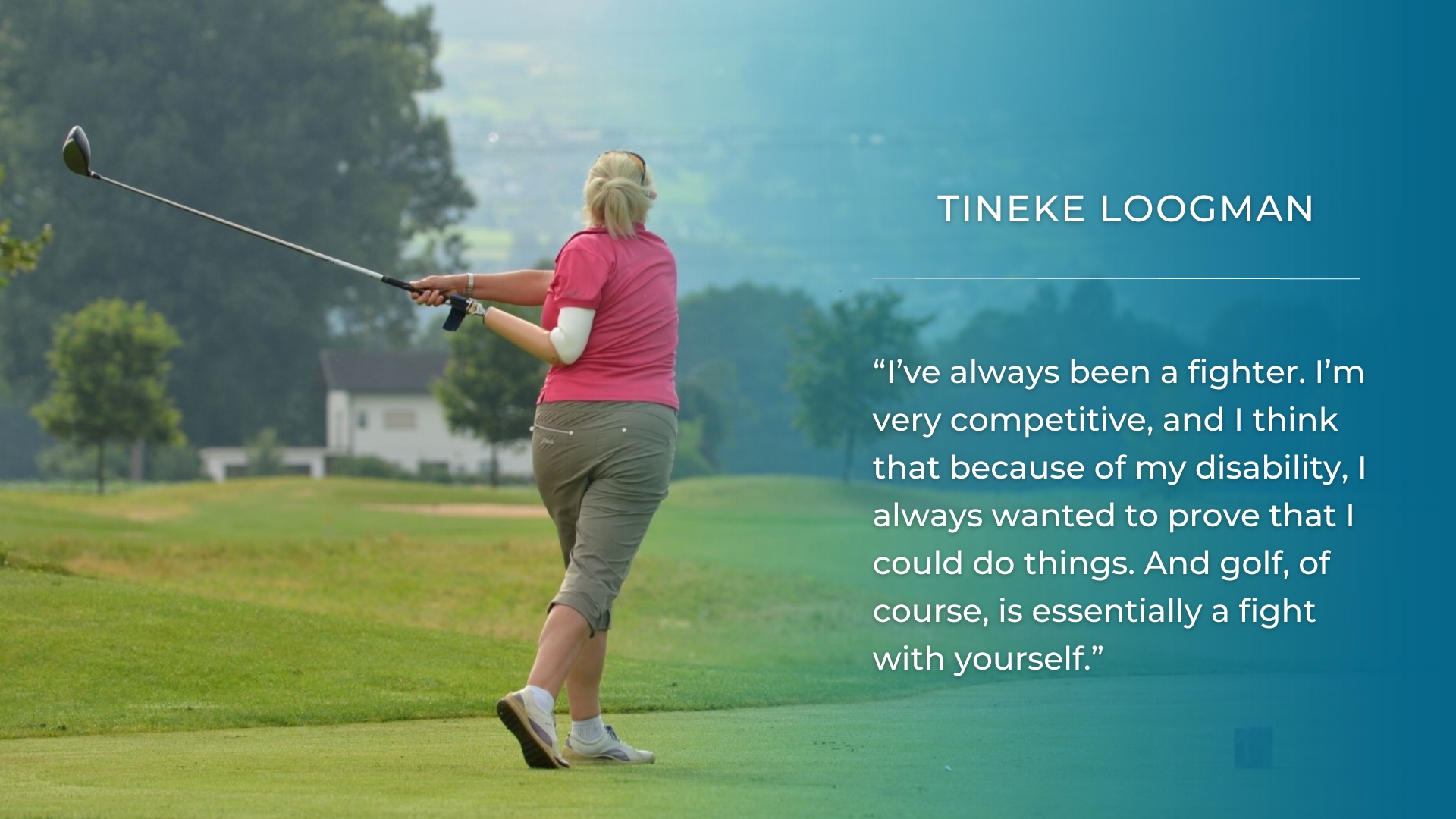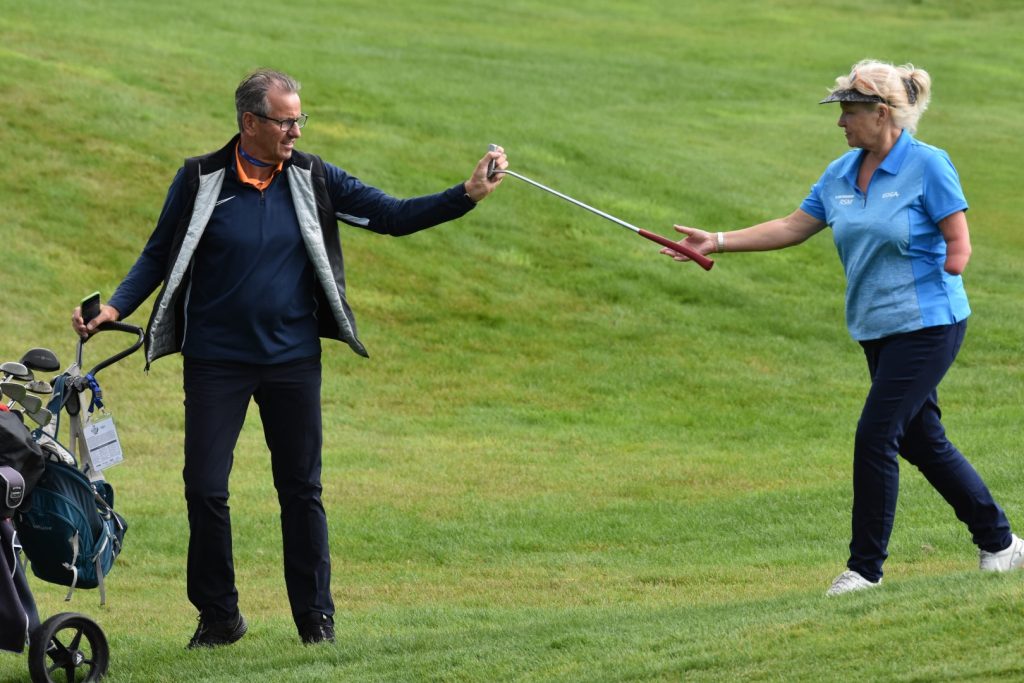Audio:
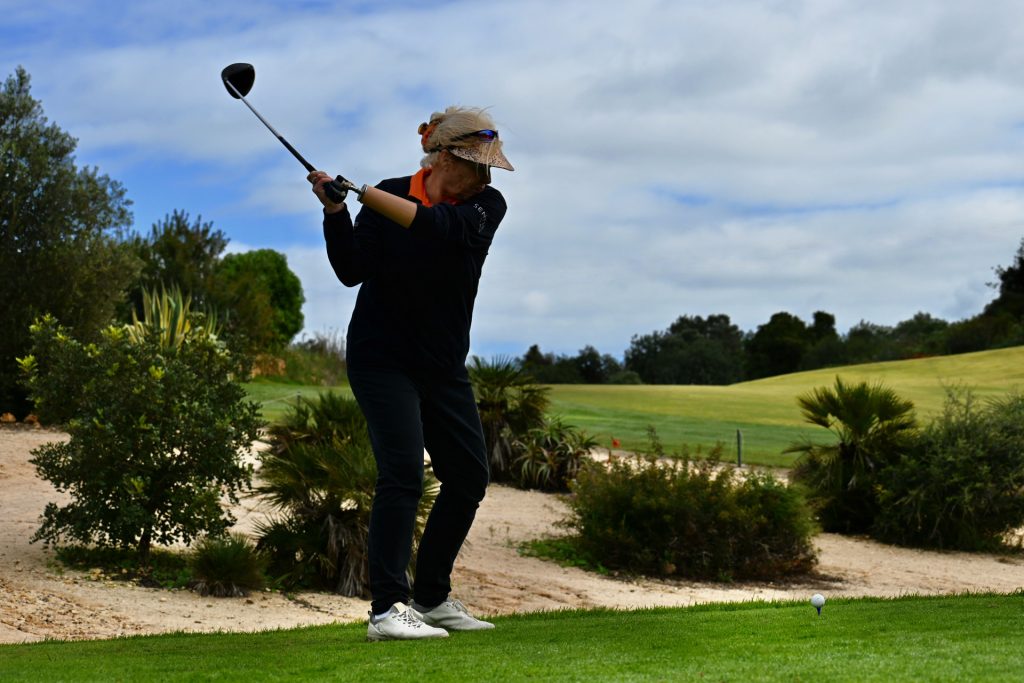
With a clear expression of gratitude, Tineke Loogman explains her positive upbringing was crucial, and that she had the right parents who encouraged her. Just as importantly, she says that she married “the right husband”, almost 40 years ago, who has supported her all the way.
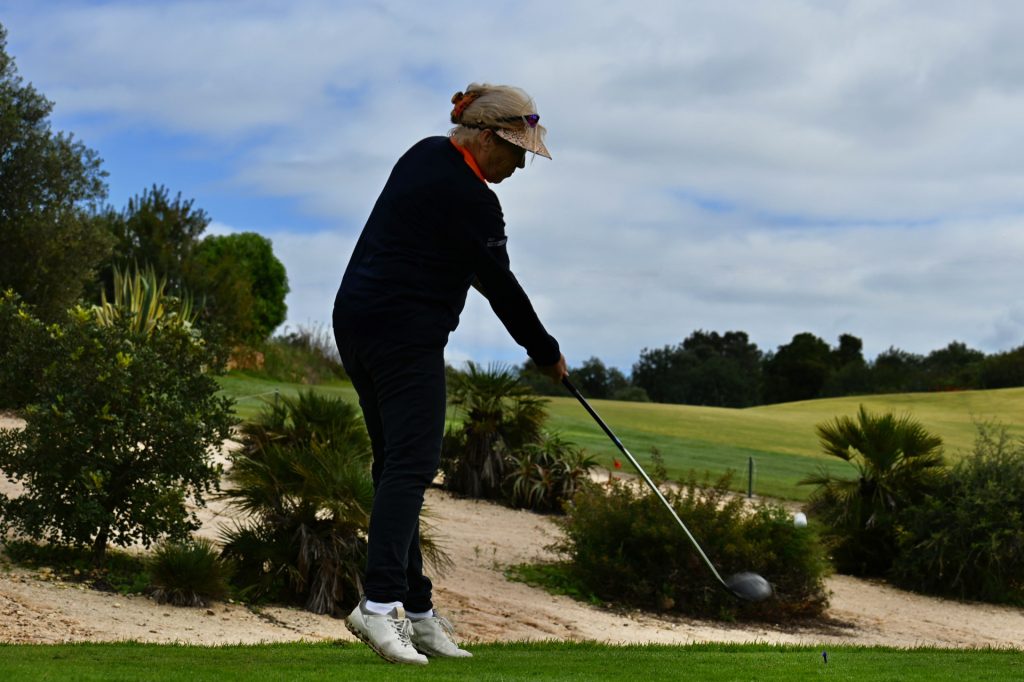
Tineke is feisty. It is in her nature. She is a fighter, someone who is unable or perhaps unwilling to accept the status quo. Tineke holds strong opinions, is direct in how she communicates them, and passionately follows what she believes to be the right way to get things done. Sometimes these traits come in the DNA at birth, but mostly they are developed through the formative years. Parents, family members, friends and challenges, create the opportunities to model or grow character.
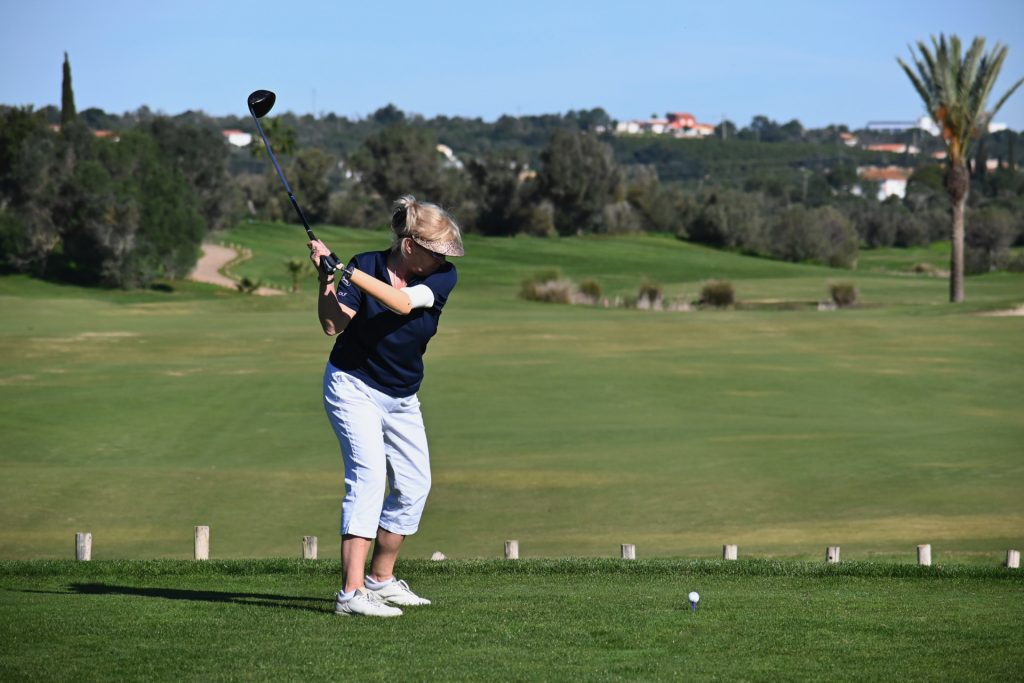
Born in Amsterdam with “one and a half arms”, as Tineke is prone to say, was indeed an obstacle. For the expectant parents, Albert and Miep, it must have been a shock to see their firstborn with the lower part of her left arm missing. Children don’t come with an instruction manual, and so it is up to each and every parent to do what they think is best. Albert and Miep were determined that their daughter would get along just fine and involved her in sports from an early age. “In my family sport was essential,” says Tineke. “and because I was born with one arm, they thought I had to start very early. So together with my older sister Marja, we did all kinds of sports. Ice skating was very important in our family; we went on tours from village to village when there was ice. And yeah, then skiing started because the ice was going away a little bit. They taught me horseback riding and finally tennis and lots of other sports.” At this stage, there was no sign of golf being on the sporting horizon for Tineke, but that would follow a few years later.
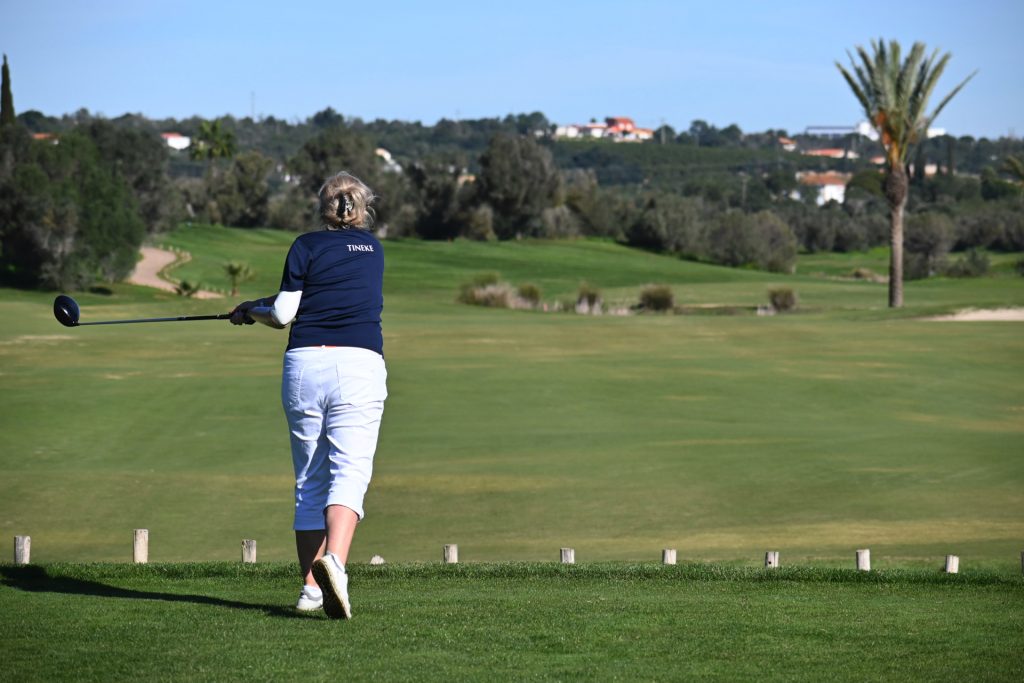
Starting a family and business were the focus of the next few years for Tineke, she and husband Ger built a car wash business that today washes more than a million vehicles a year. When Albert and Miep started to play golf things changed: “My parents started at 60 years of age, and from that moment on they couldn’t talk about anything else but golf at the kitchen table.” Even so, Tineke did not start playing golf straight away. “It was when they had their 50th anniversary of marriage that the whole family went to Florida to play some golf there. Marja and I decided to pickup the game and try.” So Tineke, at 40 years of age, had found a new game. “You know what happens then? If you start to play golf very soon you’re hooked on it,” says Tineke, who quickly developed a real appetite for the sport.
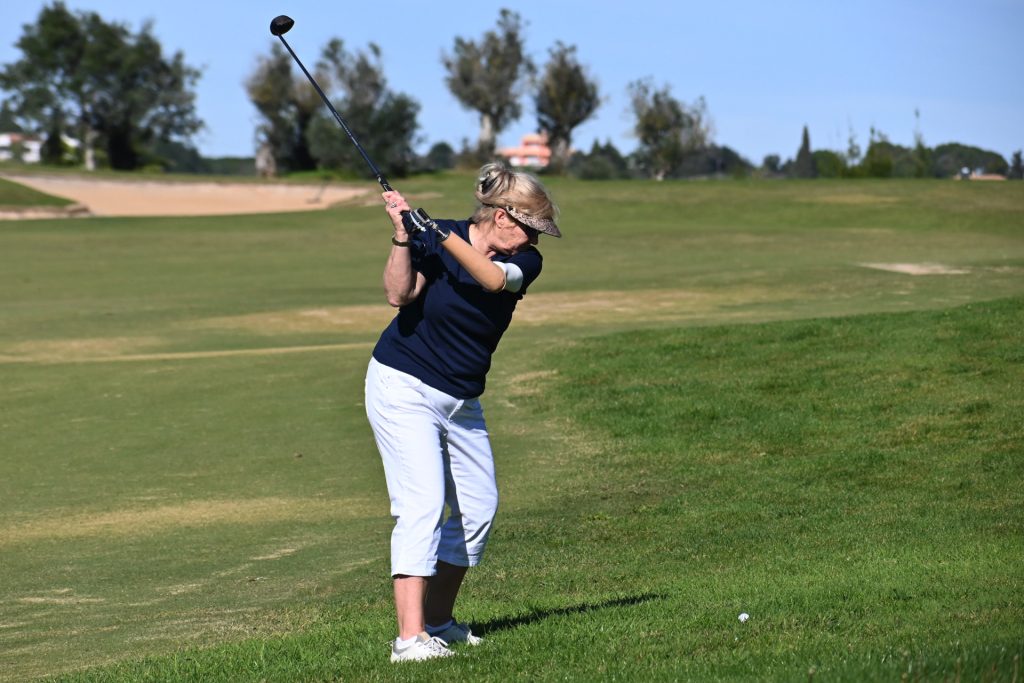
It wasn’t long before Tineke realised that there was a gap in the market. Most entrepreneurs find a need that is not being serviced and go about filling that gap. Tineke mentioned the lack of good training facilities to her husband Ger. “If I say something to my husband, he starts organising. His creative brain is starting,” and so quickly, Ger had a whole plan of how they were going to create a training facility. This vision led, in 2012, to the creation of a 9-hole championship golf course, Golf Amsteldijk in Amstelveen, complete with a 20-hectare training facility and a 9-hole par-3 course.
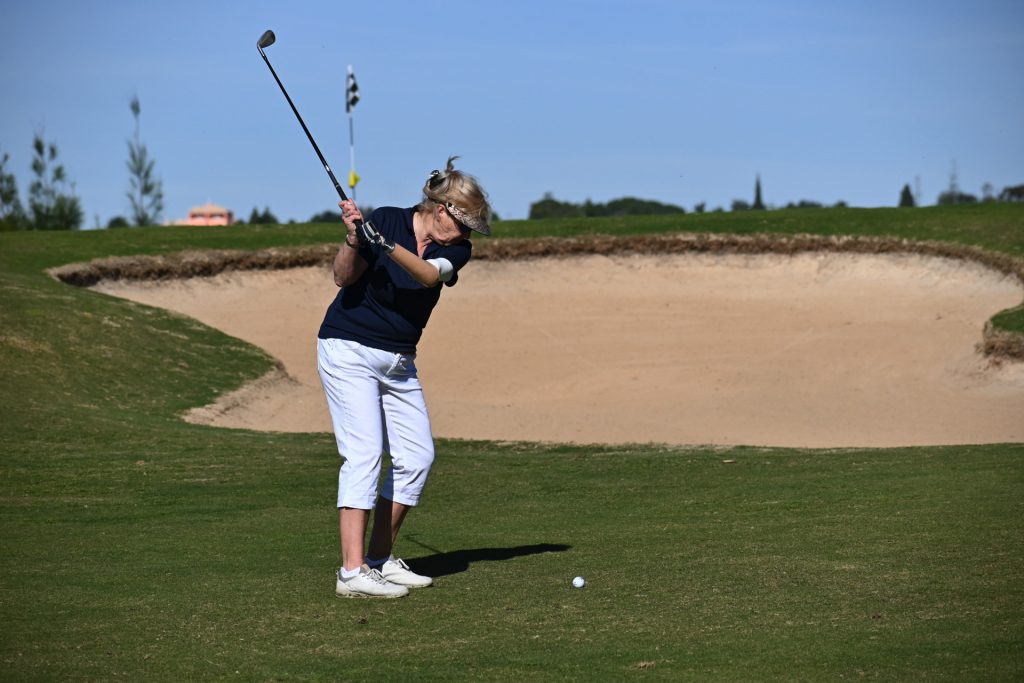
Now Tineke was not only playing golf but was also in the golf industry. Next came her involvement with EDGA in the early years. Together with some of the first movers in golf for the disabled, Pieter van Duijn, Wim Eisma, Kalle Roos, Jean Francois Claisse and others, they started to build some of the foundations for an association that has gone on to span the globe. The businesses were demanding attention of course, including the growing golf facility. Even so, Tineke’s interest in golf for the disabled continued. She is still an active player, who organises her own Handi-Golf group which now plays twice per year at up to 40 courses in Holland.
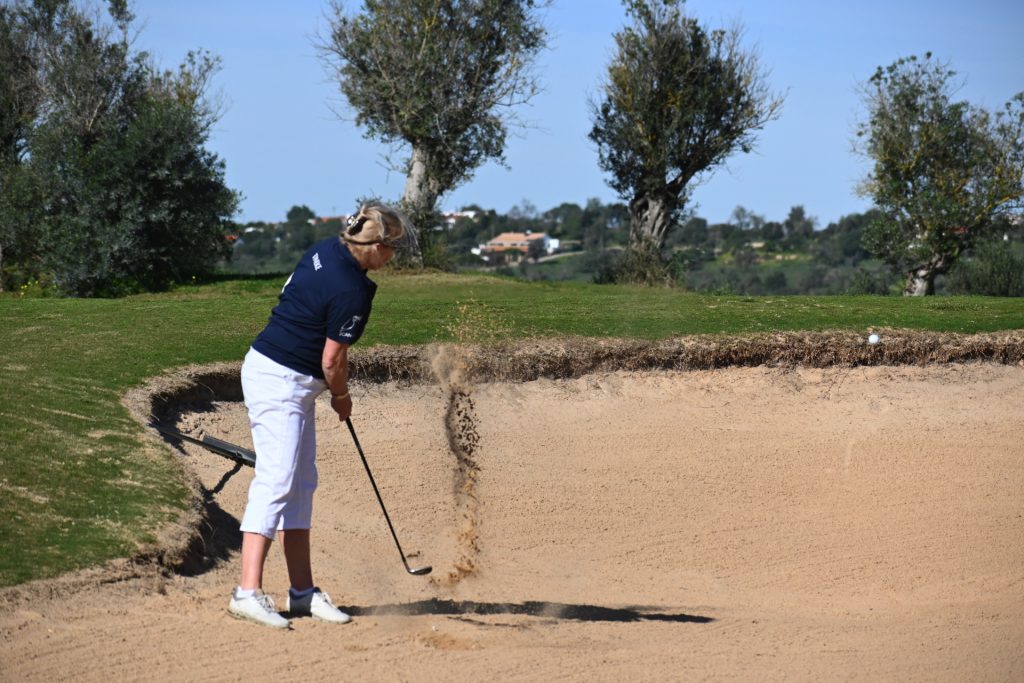
Tineke does not readily admit defeat, and believes in the importance of not making excuses. “I’ve always been a fighter. I’m very competitive, and I think that because of my disability, I always wanted to prove that I could do things. And golf, of course, is essentially a fight with yourself.”
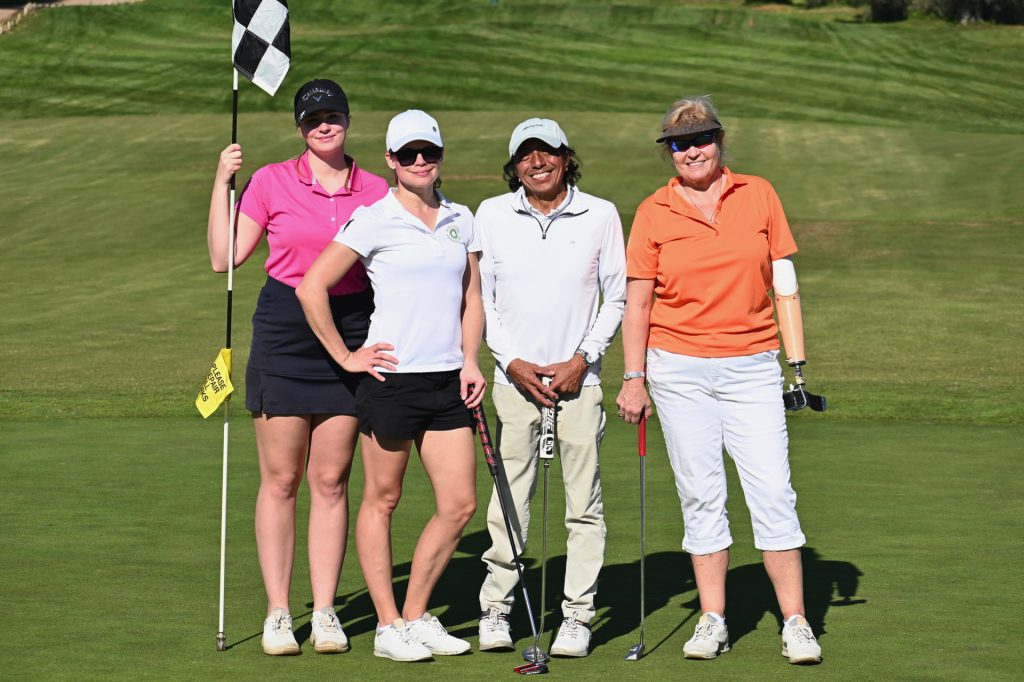
That determination has held her in good stead. She has learned how to channel her emotions and golf has helped her to get some perspective. “You can mess up something completely, and if after that you continue it’s forgotten quite soon, so that is what golf teaches me, that it’s okay, continue, forget about it, start over.”
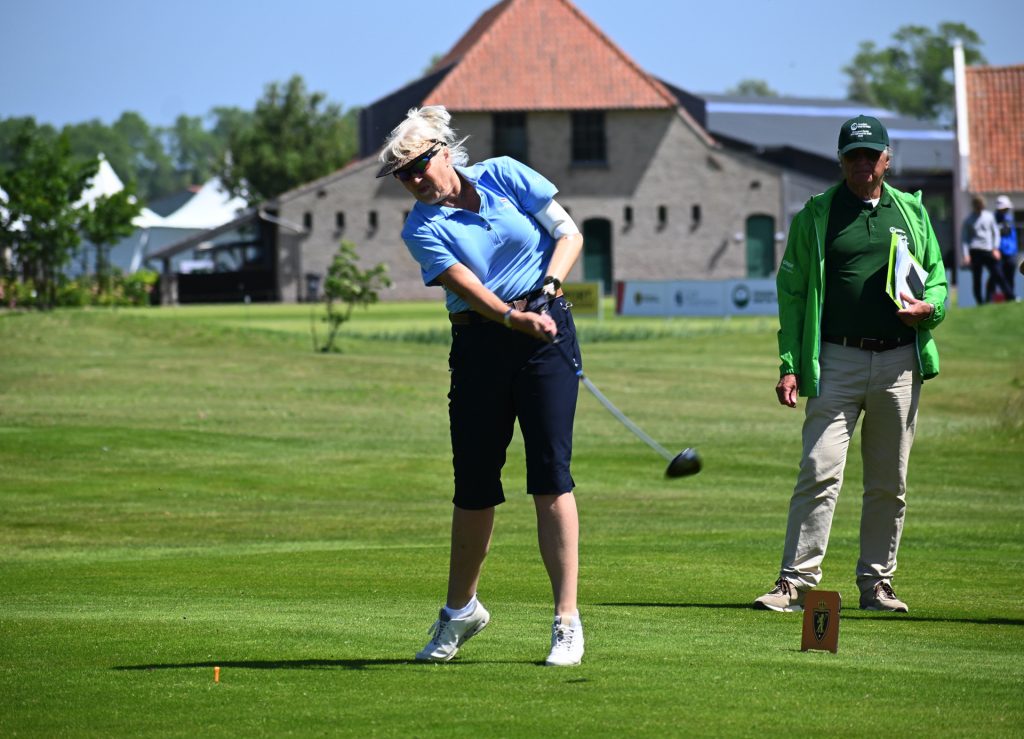
As someone who has never felt disabled, Tineke makes the point that there are lots of people like her who don’t initially identify as a person with a disability. “If you ask someone with a disability, what do you think about your disability they often say I don’t feel disabled, they have no clue what feeling disabled should mean because they don’t feel disabled.”
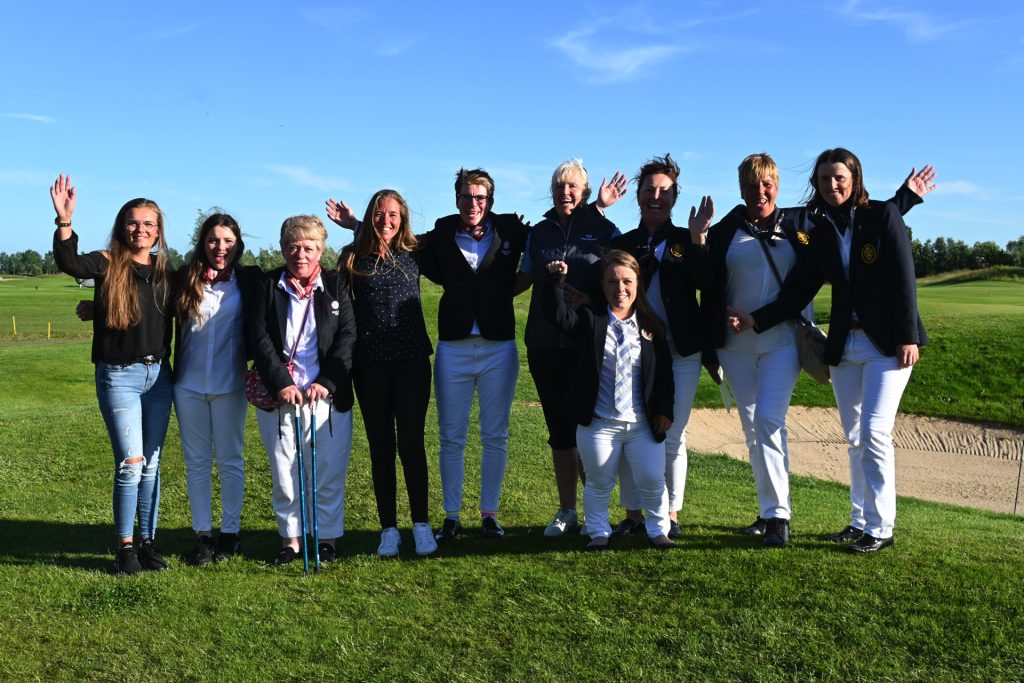
So perhaps one of the hurdles for people with disability is to accept their disability? “They don’t want to feel disabled. They don’t want to be seen as disabled. So they won’t go to a group of disabled people and be a member of that,” says Tineke. A self-imposed barrier? Perhaps. Maybe it’s a coping strategy? Everyone is different and deals with their disability differently.
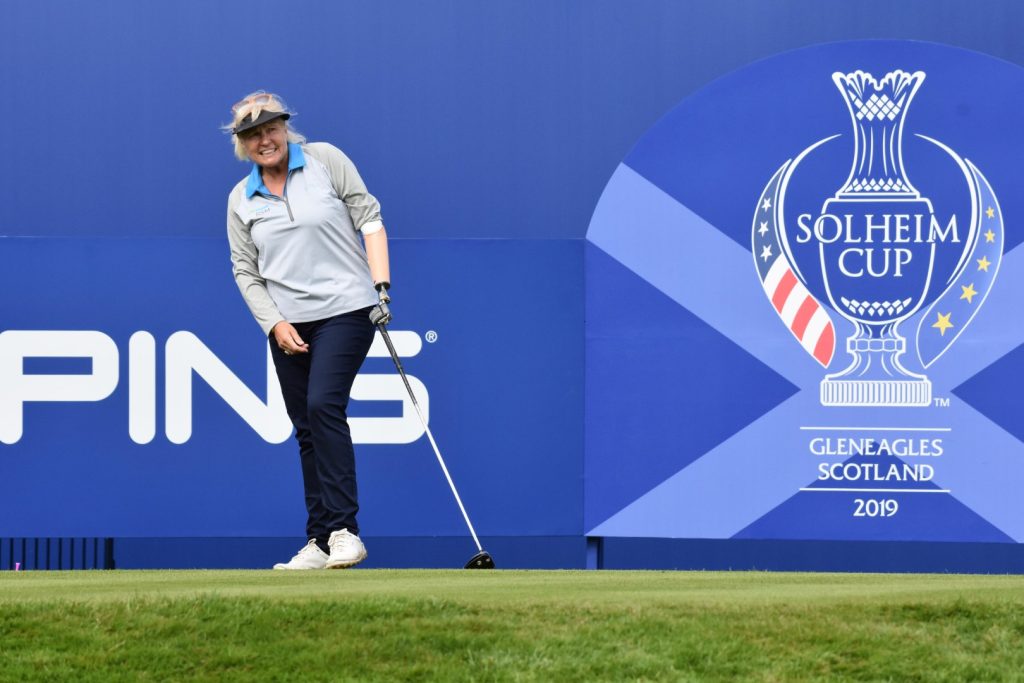
Tineke’s way is head-on. As someone who resides in two minority groups in golf, women and disabled, she clearly understands the challenge of getting more people with disability to play the game. “We need role models, so people can see other people doing amazing things even if they are disabled.” Tineke also stresses the importance of families seeing these actions so that they can also understand what is possible. “I think the most important part is awareness. They will see people with disabilities, and they will see golf that they never thought was possible for people with those disabilities.”
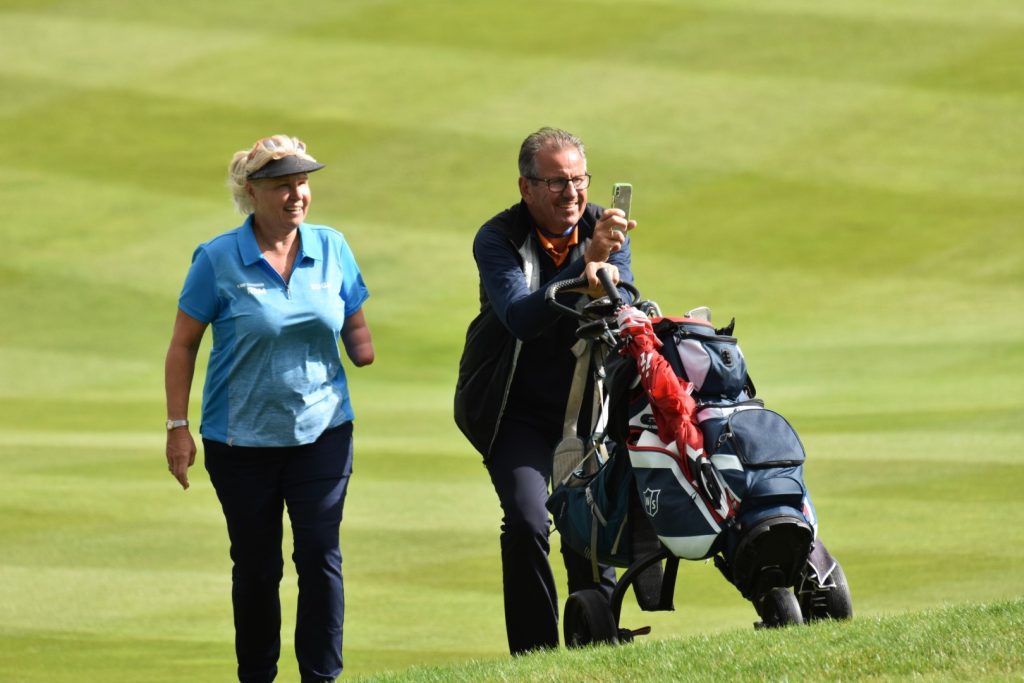
Although role models are essential, Tineke is equally as vocal when discussing the regular tournaments. “I think we need those tournaments to be more social, and we have to keep access to those tournaments for everybody.”
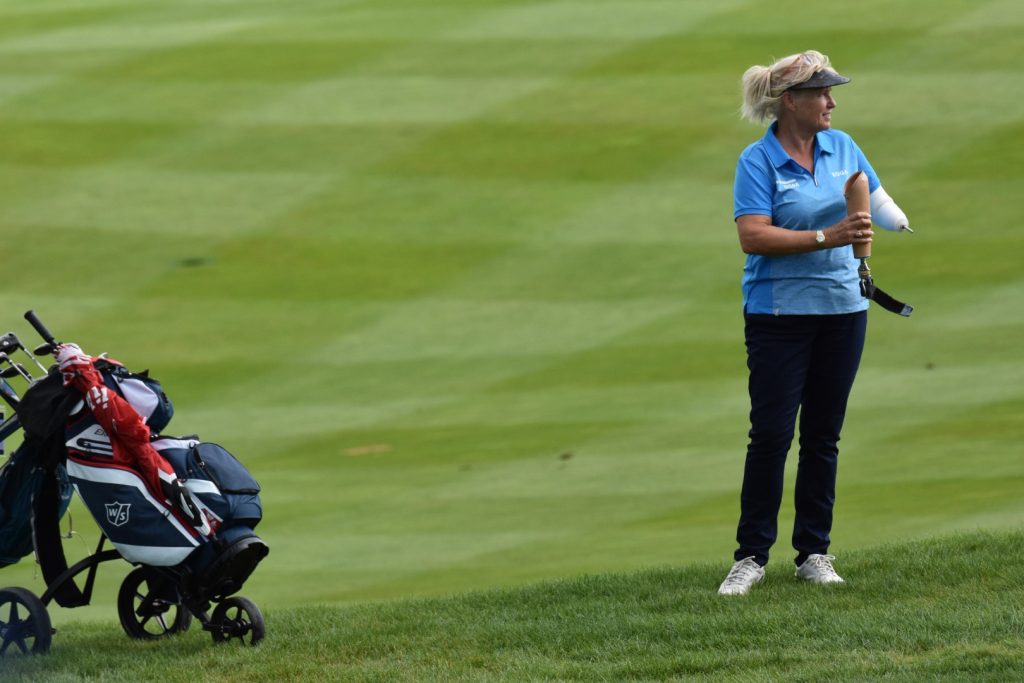
Being part of a community is essential to Tineke, including her family who have supported her all the way. The social aspect of tournaments where people can be free to be themselves, the community of like-minded people who come together. She is self-reliant but is continually learning from life, from business and from golf. One statement that came through loud and clear in our conversation sums it all up: “My mother always taught me that being dead is the only thing that can stop you. You can do everything, and if it doesn’t work the first time, you just try it again.”
Tineke in her own words:
I don’ feel disabled?
Playing her first EDGA event in Sweden?
Tineke talks about discrimination.
Do you have a new car?
The little things, it can be the same if you have big ears or red hair.
Contact EDGA
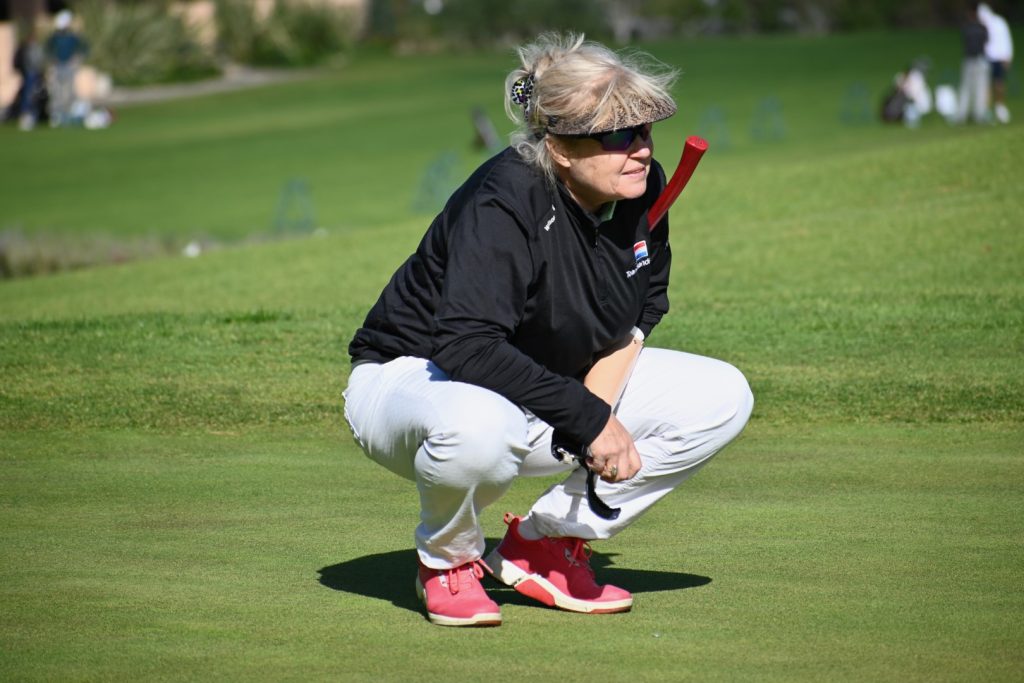
NB: When using any EDGA media, please comply with our copyright conditions


